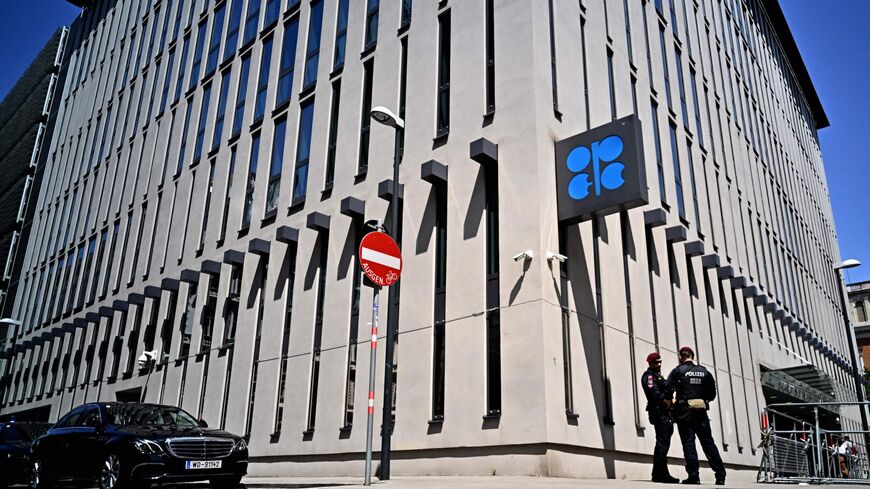VIENNA — Saudi Arabia’s energy minister defended Riyadh and Moscow’s recent oil cut decisions on Wednesday, despite a muted reception from the market. A small increase in the price of Brent crude was short lived.
On Monday Saudi Arabia and Russia, two of the most powerful members of the Organization of Petroleum Producing Countries (OPEC), announced further production cuts to prop up the market. Riyadh confirmed it would extend its cut of 1 million barrels per day (bpd) through August, while Russia said it would reduce oil exports to 500,000 bpd in August, tightening global supplies.
Although Brent climbed by 2% after the announcements, it fell back down and is still hovering around $75 a barrel. The long-term global economic uncertainty — including China's slow economic recovery from the pandemic and high interest rates — seems to be having more of an effect on investor sentiment than months of cuts. Oil prices have been relatively flat in 2023 and the prolonged low indicates many traders don’t foresee a supply shortage in the near future.
At the OPEC International Seminar in at the 23-member cartel’s headquarters in Vienna on Wednesday, Saudi Energy Minister Prince Abdulaziz bin Salman Al Saud defended the move, saying it was “meaningful” for Riyadh and Moscow to announce the cuts, which were voluntary and not “imposed.” Voluntary cuts do not need to be implemented by all OPEC+ members, nor do they require unanimous approval from the 23 countries.
“Part of what we have done with the help of our colleagues from Russia was also to mitigate the cynical side of the spectators on what is going between Saudi Arabia and Russia, in that specific matter,” he said, referring to traders who are selling oil off despite the cuts, causing prices to stay low.
The main challenge for the market was regular reviews on oil output, as they can heavily influence demand. Abdulaziz cited an update from the US Energy Information Administration from last week that said US production of crude fell in April to 12.615 million bpd, its lowest since February. He also railed against the International Energy Agency, which has provided conflicting data to OPEC on oil demand. OPEC forecasts oil demand to grow to 110 million bpd by 2045, while the IEA believes that global demand for oil will slow significantly by 2028.
Abdulaziz said with Saudi Arabia's policy going forward, there would be no return to the 1980s, when the country acted as a swing oil producer and was able to increase or decrease supply at minimal cost to balance markets.
He also hailed the cuts as showing Riyadh's unity with Moscow.
“There are always reviews, and that's why we have unfortunately — and I say unfortunately — discarded the IEA because the IEA had their own set of numbers,” the Saudi energy minister said. “But then they come and revisit and revise [those numbers] along with the other anomalies that come out of the IEA, which create a distortion to what the market should see today.”
OPEC Secretary General Haitham Al Ghais opened the conference on Wednesday.
“Billions of people depend on our commodity, oil, for daily life,” he said. "This is an inescapable reality that warrants respect. That is why OPEC pursues market stability.”
He added that the energy industry wants to create an emissions-free future and harnessing technology, one of the main themes of the seminar, will help achieve it.
“However, oil is too central and fundamental for life just to stop. We recognize the reality and constantly strive to reduce our environmental footprint so we can all move towards a sustainable and inclusive energy transition.”
Prince Abdulaziz also called for “more transparency” in the market, despite OPEC blocking reporters from several media outlets from the conference, including Al-Monitor, Bloomberg, Reuters and The Wall Street Journal.
An OPEC spokesperson told Al-Monitor it was “an administrative decision” but gave no other reason for the move.
It is the second time in a month the cartel has barred some reporters from covering its events.








